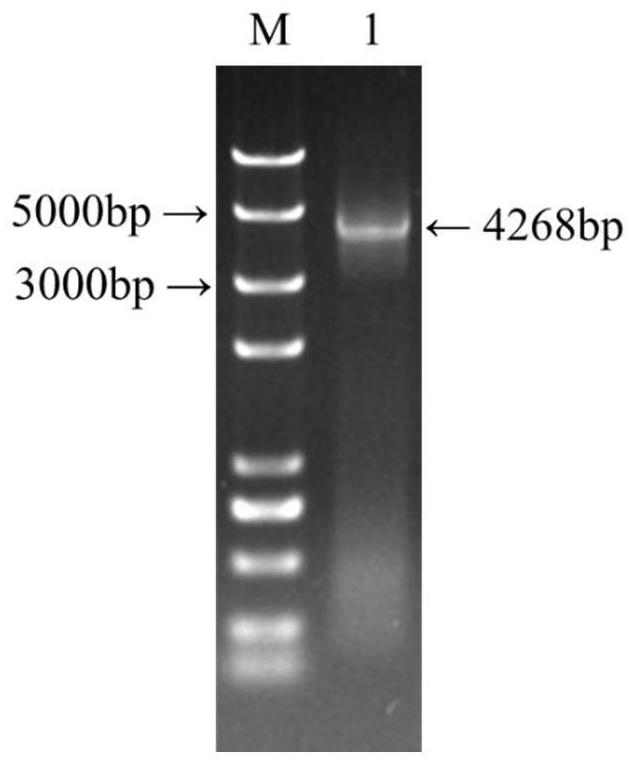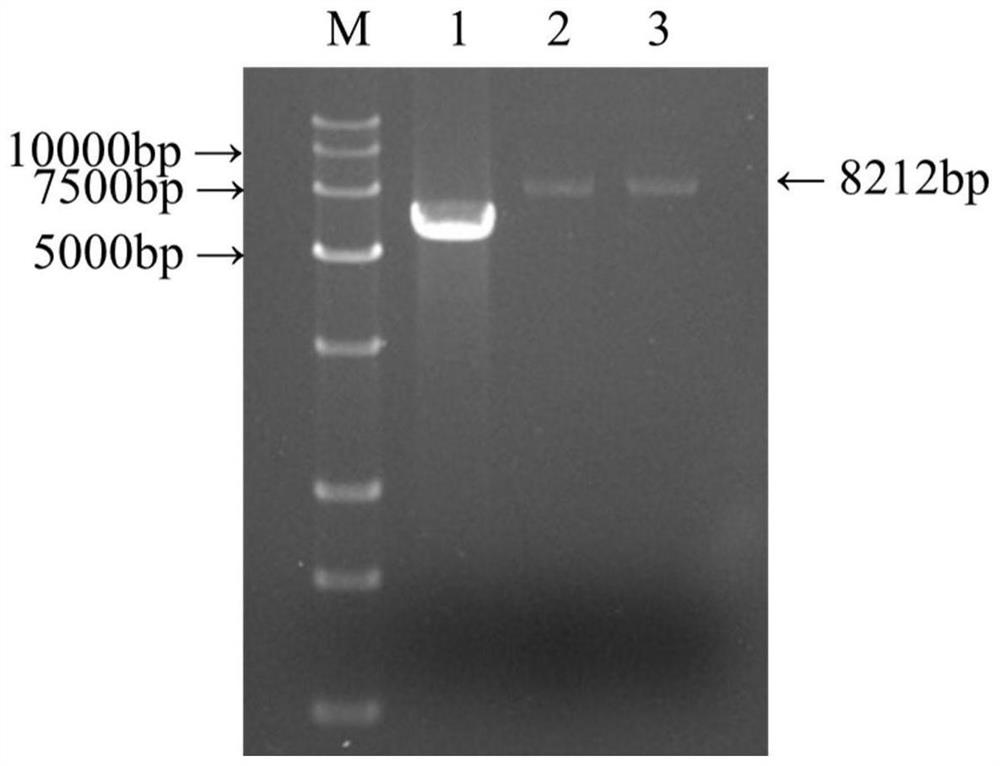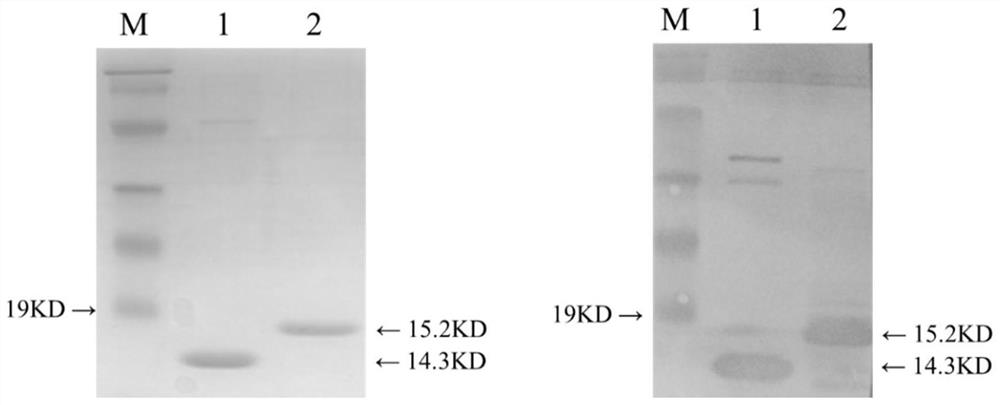Recombinant bacterium for expressing SEF14 functional fimbriae and application of recombinant bacterium
A technology of recombinant strains and recombinant plasmids, which is applied in the fields of biomedicine and immunodiagnosis, and can solve the problems of lack of specific targeting
- Summary
- Abstract
- Description
- Claims
- Application Information
AI Technical Summary
Problems solved by technology
Method used
Image
Examples
Embodiment 1
[0041] Amplification and cloning of embodiment 1 Salmonella enteritidis sef14 operon
[0042] Using the genome of Salmonella enteritidis standard strain C7920 as a template, use P505 ultra-fidelity enzyme (purchased from Nanjing Novizan Biotechnology Co., Ltd.) to amplify the sef14 operon gene fragment, and its coding sequence without signal peptide is:
[0043]
[0044]
[0045]
[0046]
[0047] The upstream and downstream primers for amplifying the sequence are:
[0048] sef-up: 5'-G GCAT GC AAAATg gCg TgAgTATAT TAg CAT CCg CA-3';
[0049] set-lo: 5'-C G TCG AC TT ATT ATAATT CAA TTT CTG TCG CAT AT-3'.
[0050] Wherein the underline marks represent SphI and SalI restriction sites respectively, and the amplified product is 4268bp ( figure 1 ).
[0051] The sef14 operon gene fragment amplified by PCR and the pBR322 vector were digested with SphI and SalI, and then circularized in vitro by DNA ligase. The product was named pBR-sef14, and then transformed int...
Embodiment 2
[0052] Expression and identification of embodiment 2SEF14 pili and SefA recombinant protein
[0053] Expression of SEF14 pili: pBR-sef14 was transformed into Escherichia coli SE5000, cultured at 37°C for 12 hours, and pili were extracted by heat extraction method. SE5000 containing only pBR322 empty vector was used as negative control. The steps of the heat extraction method are: place the above bacterial solution at 4°C and centrifuge at 4500rpm for 10 minutes, discard the supernatant and wash twice with sterile PBS; then add 1M NaCl-0.05M Tris-HCl (pH=7.4) solution to resuspend the bacterial cells and Place in a water bath at 62°C for 30 minutes; centrifuge at 8,000 rpm for 20 minutes, transfer the supernatant to a new centrifuge tube for volume measurement, slowly add saturated ammonium sulfate dropwise to a final concentration of 25%, and precipitate overnight; centrifuge at 14,000 rpm for 30 minutes the next day, discard the supernatant, and use Resuspend the pellet in st...
Embodiment 3
[0060] Example 3 Indirect agglutination test of recombinant bacteria based on SEF14 pili to detect Salmonella Enteritidis infection in chicken flocks
[0061] After cultivating the recombinant bacteria expressing SEF14 pili obtained in Example 1-3 for 12 hours, the amount of bacteria was adjusted to be 5×10 9CFU / mL, then centrifuge at 4000rpm for 5min, discard the supernatant and wash twice with sterile PBS. Use PBS containing 0.25% formaldehyde to resuspend the bacteria, and place it overnight at 4°C as the agglutinating antigen. The above-mentioned agglutinated antigen was respectively mixed with 10 parts of SPF chicken infection Salmonella enteritidis serum (numbering is 1-10), 30 parts of clinical Salmonella enteritidis positive serum (numbering is 11-40), 10 parts of clinical Salmonella pullorum serum (numbering is 41-50) ), 10 clinical Salmonella typhi positive chicken serum (number 51-60), 10 clinical E. coli positive chicken serum (number 61-70), 10 SPF chicken infect...
PUM
 Login to View More
Login to View More Abstract
Description
Claims
Application Information
 Login to View More
Login to View More - R&D
- Intellectual Property
- Life Sciences
- Materials
- Tech Scout
- Unparalleled Data Quality
- Higher Quality Content
- 60% Fewer Hallucinations
Browse by: Latest US Patents, China's latest patents, Technical Efficacy Thesaurus, Application Domain, Technology Topic, Popular Technical Reports.
© 2025 PatSnap. All rights reserved.Legal|Privacy policy|Modern Slavery Act Transparency Statement|Sitemap|About US| Contact US: help@patsnap.com



